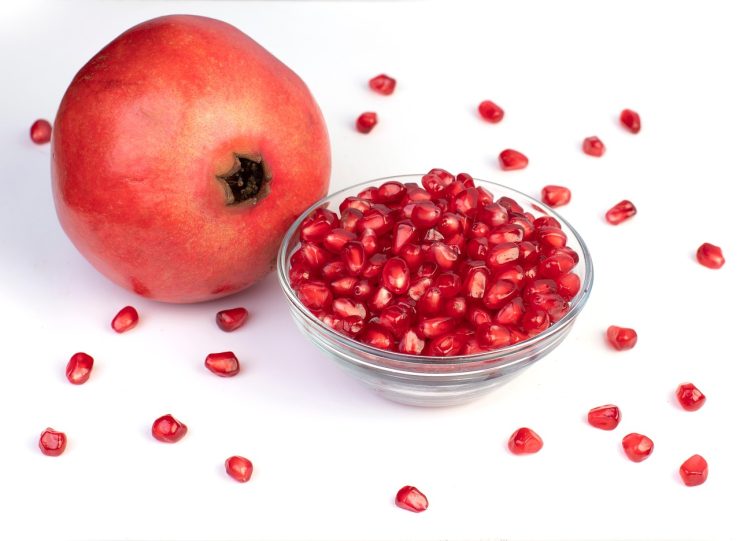There’s one antioxidant that stands out among the rest—so much so, it’s often called the “master antioxidant.” That title goes to glutathione, a powerful compound the body depends on for protection, energy, detoxification, and overall health.
Low levels of glutathione have been linked to an increased risk of serious conditions like stroke, heart disease, diabetes, Alzheimer’s, cancer, and even complications from infections like COVID-19. It also plays a major role in recycling other antioxidants—think vitamin C, vitamin E, alpha-lipoic acid, and CoQ10—keeping the body’s entire defense system running efficiently.
What Is Glutathione, Exactly?
Glutathione is made up of three amino acids: cysteine, glycine, and glutamic acid. Together, they form a molecule that can neutralize harmful free radicals, detoxify heavy metals (like mercury and lead), and support the immune system. It’s also one of the few antioxidants the body can actually make on its own—though that doesn’t mean there’s always enough.
One of its biggest jobs? Protecting mitochondria, the tiny powerhouses in every cell that generate energy. Without enough glutathione, these cellular engines become vulnerable to damage, which can have a ripple effect across every body system.
Why Glutathione Levels Drop
Even though the body produces glutathione, certain factors can deplete it:
-
Aging (levels decline after age 20)
-
Poor diet, especially one high in processed foods
-
Smoking and excessive alcohol
-
Pollution and environmental toxins
-
Stress, lack of sleep, and even too much sun exposure
-
Certain medications, including acetaminophen
-
Health conditions like diabetes, hepatitis, Parkinson’s, or autoimmune disorders
When glutathione levels drop, the body’s ability to detoxify and defend itself weakens—opening the door to chronic illness and faster aging.
What Glutathione Does for the Body
1. A Potent Antioxidant
Free radicals—unstable oxygen molecules—can damage cells, accelerate aging, and contribute to disease. Glutathione neutralizes these harmful compounds more effectively than most antioxidants and also helps restore levels of others, making it a multitasking powerhouse.
2. Reduces Chronic Inflammation
Inflammation is a natural immune response, but when it becomes chronic, it contributes to conditions like heart disease, cancer, and autoimmune problems. Glutathione helps regulate inflammation by reducing the production of inflammatory cytokines—chemical messengers linked to many chronic diseases. Conditions like asthma, pneumonia, COPD, and even post-viral inflammation (as seen in severe COVID-19 cases) may improve with balanced glutathione levels.
3. Supports a Balanced Immune System
Whether it’s fighting infections or calming an overactive immune response, glutathione helps regulate immune function. It powers up natural killer (NK) cells and T-cells, essential for fighting off viruses and bacteria. Studies even show glutathione can help suppress chronic infections like Epstein-Barr, herpes, or Lyme disease and can modulate overactive immune responses seen in autoimmune conditions.
4. Promotes Brain Health
The brain is especially vulnerable to oxidative stress. Low glutathione levels are linked to cognitive decline, memory problems, and neurodegenerative conditions like Alzheimer’s and Parkinson’s. Research shows that boosting glutathione may help protect neurons, reduce plaque buildup in the brain, and improve memory and cognitive function.
5. Aids in Detoxification
Detoxification isn’t just about juice cleanses—it happens inside cells, around the clock. Glutathione binds to toxins, heavy metals, and waste products, making them water-soluble so they can be excreted through urine or bile. The liver holds the body’s highest glutathione concentration for this very reason. Without enough, the body struggles to keep up with the toxic load from diet, medications, and the environment.
6. Improves Athletic Performance
Glutathione plays a role in reducing muscle fatigue and supporting recovery. In small studies, athletes supplemented with glutathione experienced less soreness and lower lactic acid levels. It also supports nitric oxide production, which enhances blood flow, oxygen delivery, and endurance.
7. Supports Vitamin D Metabolism
Glutathione helps the body use vitamin D more efficiently. Low levels of glutathione may impair vitamin D absorption and function. Combining the two—vitamin D and glutathione—can help reduce inflammation and improve immune response.
Other Benefits of Glutathione
-
Heart health: Helps lower inflammation and oxidative stress that contribute to cardiovascular disease.
-
Diabetes: Supports glucose metabolism and protects tissues from damage caused by high blood sugar.
-
Skin health: Promotes a more even skin tone, reduces age spots, and improves elasticity.
-
Kidney support: Helps patients with chronic kidney disease manage oxidative stress and anemia.
-
Anti-aging: By fighting oxidative damage and inflammation, glutathione may slow biological aging.
How to Raise Glutathione Naturally
Through Food:
Certain foods boost the body’s own glutathione production, especially those rich in sulfur or amino acids:
-
Whey protein (cold-processed and grass-fed)
-
Cruciferous vegetables: broccoli, kale, cauliflower, Brussels sprouts
-
Allium vegetables: garlic, onions, leeks, chives
-
Grass-fed meats and pastured eggs
-
Brazil nuts, wild-caught fish, and organ meats (high in selenium, a mineral needed for glutathione production)
Glutathione is also present in raw foods like asparagus, spinach, and tomatoes, though cooking and storage can reduce its levels.
Supplementing with Glutathione
Glutathione supplements are available in capsule or liposomal form. The liposomal version is more bioavailable—it protects glutathione through digestion and helps it enter the bloodstream effectively.
When choosing a supplement, look for:
-
“Reduced” or “L-glutathione” on the label
-
Liposomal delivery for improved absorption
Final Thoughts
Glutathione is a vital antioxidant with wide-reaching benefits for nearly every system in the body—from immune and brain health to detoxification and exercise performance. While the body produces it naturally, daily stress, environmental exposure, aging, and poor diet can deplete levels over time.
Supporting glutathione through diet, lifestyle, and high-quality supplements can help promote resilience, slow aging, and offer protection against many of today’s most pressing health concerns.
Let the master antioxidant do what it does best—keep the body strong, balanced, and protected.











